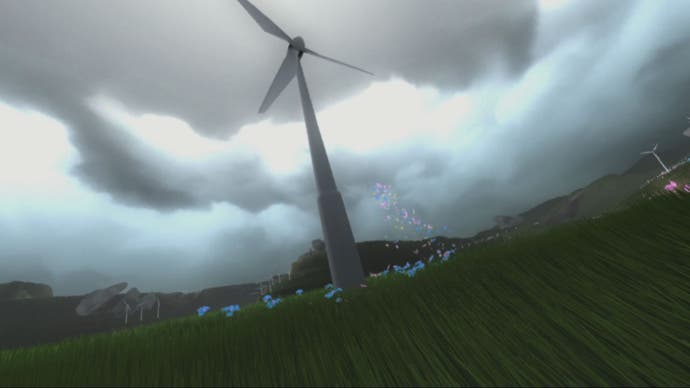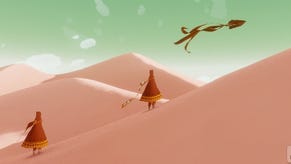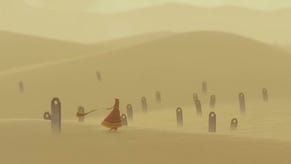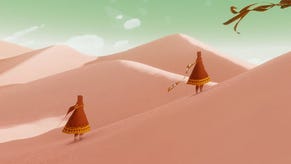Flower
But is it game?
The three stages we've played so far, despite their lack of a HUD or scores or gauges or explicitly defined goals - all of the things we've come to expect from the medium - do have a game-like structure. There are inputs you must make, actions that you must trigger and a path of interactions that must be followed to progress and so, underneath the sparse top layer there is still a traditional, if slight, game arrangement. Viewed unfairly this sparseness will be seen as a lack of content and ideas as much as a stripping away of the medium's tropes: style over style over substance. And viewed too generously, it will result in the kind of exultant prose and breathless recommendation from critics that will put too much burden on its delicate shoulders, ensuring a backlash hits before the game's even out.
It is also a game with aspirations to Art, something that will no doubt count against it. Despite the textless, subdued presentation, the message of the game rings loud, clear and also a little unsubtle. The game opens in a dreary urban scene, a wilted flower standing on grey, miserable window ledge looking out across wet streets, traffic lights smearing colour in rain droplets in the middle distance. Centre the camera on the flower, and you'll be transported to a level, the implication that you're playing inside the flower's dream of its former life in the countryside. Complete the stage and, when you return to the sepia shop window, the flower has now straightened its stem, the further implication being that it has taken strength from this memory.
You'll already know whether that's the kind of meta-narrative that makes you weak at the knees or weak at the stomach: Flower's divisiveness is assured. Many will accuse the game of pretentiousness, which is a word that's now irritatingly synonymous with anything that's ambitious, unusual and different. Flower is not pretentious: it is ambitious, unusual and different.

The strength of videogames - their glorious, wonderful, compelling strength - is in providing us access to impossible experiences. Flower presents an impossible experience: something that could never be felt outside of a videogame. It's wonderfully abstract and yet wholly tactile at the same time.
The strength of the game is in its wholesale embrace of its fragility: the confidence to be an art game without apology, the courage to be textless, the strength in focusing on a subject matter with such feminine overtones and association on a platform that has neither. This is interesting. This is unusual. Only a bonehead would deny its existence is a good thing for videogames. But whether the result makes for a good videogame is another question. And whether that question even matters here is yet another.
Flower is due out exclusively for PS3 on 12th February.








